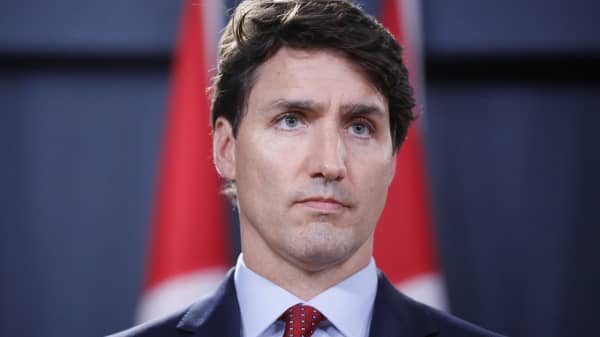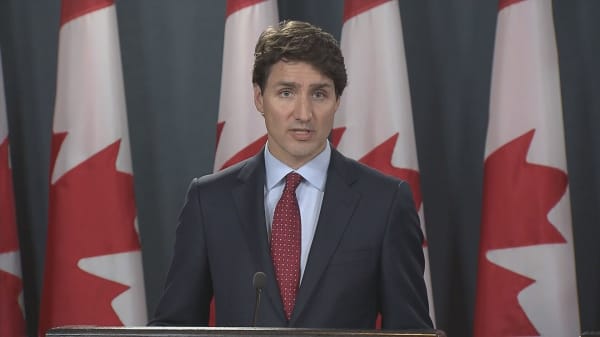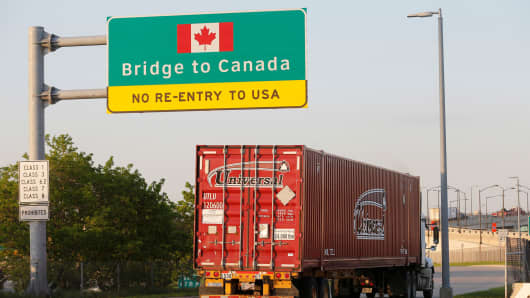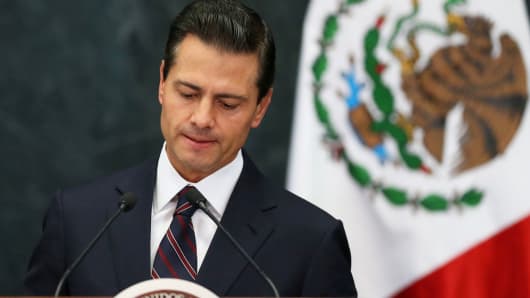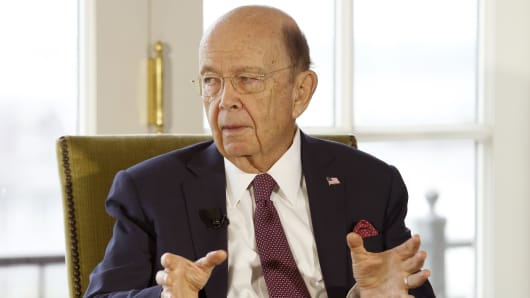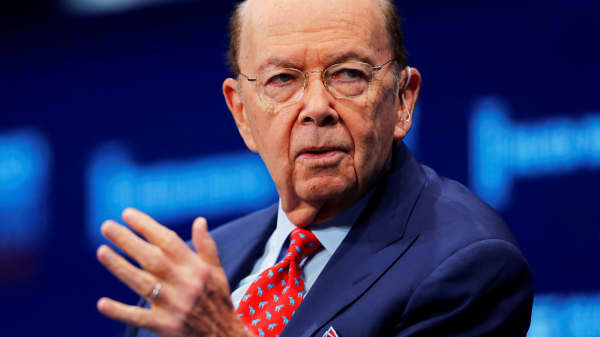Major U.S. trading partners wasted little time Thursday striking back against a White House move to slap steel and aluminum tariffs on Canada, Mexico and the European Union.
"This is protectionism, pure and simple," said the European Commission's president, Jean-Claude Juncker, as European trade officials issued a list of hundreds of U.S. products, from peanut butter to motorcycles, which would now be subject to tariffs for European consumers.
Mexico, the third-largest U.S. trade partner, said it would penalize U.S. imports including pork bellies, apples, grapes, cheeses and flat steel.
Canada, the second-largest trade partner, behind China, responded with "dollar-for-dollar" tariffs against U.S. steel and aluminum exports.
In a press conference Thursday, Canadian Prime Minister Justin Trudeau called the Trump administration's tariffs "totally unacceptable." He said the White House argument that Canadian steel and aluminum imports represent a national security risk is "absurd."
On Thursday, Commerce Secretary Wilbur Ross said the U.S. tariffs would amount to 25 percent on steel and 10 percent on aluminum, and they would go into effect on Friday. The administration was following through on penalties after earlier granting exemptions to buy time for negotiations. President Donald Trump initially announced the tariffs in March, citing national security concerns, but promised to delay them as negotiations proceeded.
U.S. exports targeted by EU
The list of U.S. exports targeted by the European Union included jewelry products (worth $1.46 billion a year), Bourbon whiskey ($737 million), automotive glass ($686 million), telecom equipment ($506 million) and a wide range of personal care products ($470 million), according to S&P Global Market Intelligence.
Also on the list: American-made blue jeans, worth about $76 million a year in exports to the European Union.
Mexico's economy ministry said its countermeasures will remain in effect until the U.S. government drops the steel and aluminum tariffs.
"Mexico reiterates its openness to constructive dialog with the United States, its support for the international commerce system and its rejection of unilateral protectionist measures," it said.
Mexico buys more steel and aluminum from the United States than it sells. It is the top buyer of U.S. aluminum and the second buyer of U.S. steel, the economy ministry said. Its countermeasures will hit U.S. hot and cold rolled steel, plated steel and tubes, the ministry said.
The latest salvo in the Trump administration's trade war comes as the United States, Canada and Mexico have been renegotiating NAFTA, which governs trade between the three countries.
The trade actions have opened the U.S. to criticism that it's burning bridges at a time when Trump is seeking to rid North Korea of nuclear weapons and help stabilize the Middle East.
"We are alienating all of our friends and partners at a time when we could really use their support," said Wendy Cutler, a former U.S. trade negotiator who is now vice president at the Asia Society Policy Institute.
NAFTA talks taking longer
Ross told reporters that talks with Canada and Mexico over revising the North American Free Trade Agreement were "taking longer than we had hoped." Talks with Europe had "made some progress" but not enough for additional exemptions, he said in a conference call from Paris.
"We continue to be quite willing and indeed eager to have further discussions," Ross said. He said he planned to travel to China on Friday for trade talks between the world's two biggest economies.
European officials had braced for the tariffs, and the EU has threatened to retaliate against U.S. orange juice, peanut butter and other goods in return. In terms of the NAFTA talks, the tariffs could hinder the negotiations among the North American neighbors.
On NAFTA, Ross said there was "no longer a very precise date when they may be concluded and therefore (Canada and Mexico) were added into the list of those who will bear tariffs."
Brazil, Argentina and Australia have agreed to limit steel shipments to the U.S. in exchange for being spared the tariffs, the Commerce Department said. Tariffs will remain on imports from Japan.
While the EU tariffs are expected to have a relatively small overall impact on the U.S. economy, the levies will be felt unevenly from one state to another. New York state, for example, would be the hardest hit in dollar terms because of new EU duties on American jewelry exports.
Fears of a global trade war are already weighing on investor confidence and could hinder the global economic upturn. European officials argue that tit-for-tat tariffs will hurt growth on both sides of the Atlantic, and Canada said before the announcement that it would respond in kind.
WATCH: Ross: Tariffs apply to small percentage of US economy
— The Associated Press and Reuters contributed to this report.


